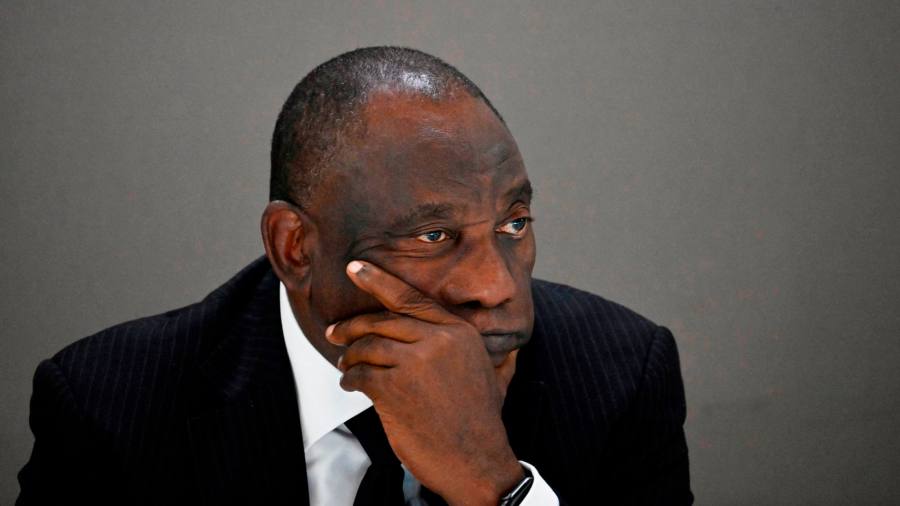
Receive free South Africa updates
We’ll send you a myFT Daily Digest email rounding up the latest South Africa news every morning.
South Africa’s president Cyril Ramaphosa has been cleared by a state ombudsman of wrongdoing over the theft of thousands of US dollars stuffed into a sofa on his private game farm, a boost as he battles to put the biggest threat to his presidency behind him.
Kholeka Gcaleka, South Africa’s acting public protector, said on Friday that Ramaphosa did not violate an ethics code over the fallout from the 2020 incident when at least $580,000 was stolen from the Phala Phala reserve, which set off a chain of events that shook his authority in the ruling African National Congress.
“The allegation that the president improperly . . . exposed himself to any risk of a conflict between his constitutional duties and obligations and his private interests arising from or affected by [the Phala Phala theft] is not substantiated,” she said.
Gcaleka added that there was also no evidence the president abused his power over an investigation into the theft of the cash, which he has said came from a sale of buffalo, but did question how police handled the probe.
The findings will strengthen Ramaphosa’s hand in the governing party after he came close to resigning last year over the scandal, when a report to parliamentarians found he might have broken the law over the theft’s aftermath.
Ramaphosa opted to stay on as president as supporters rallied around him and the ANC re-elected him by a large margin to lead it into national elections next year. The party also used its parliamentary majority to veto a full investigation by lawmakers into his possible impeachment over the affair.
The scandal threatened to shatter an already fragile effort to turn round South Africa’s institutions and economy since he took power in 2018, after years of looting and rot under Jacob Zuma, the former president.
Ramaphosa, a former trade unionist and anti-apartheid veteran, has said he invested in game farming, particularly Ankole cattle, with wealth he garnered as a business tycoon during a long break from politics before he returned as Zuma’s deputy.
The public protector probe did not look at the origin or amount of the cash held at Phala Phala, where Ramaphosa could still face sanctions from other regulators given South Africa’s controls on the use of foreign currency.
Unanswered questions over the cash have sapped Ramaphosa’s reputation as a reformer just as his government has come under fire for its perceived listlessness over the country’s energy crisis, other festering economic problems, and confusion with the government’s stance over the Russia-Ukraine war.
The ANC is facing an uphill battle to retain its majority in the 2024 election, 30 years after it first won power.
Hazim Mustafa, a Sudanese businessman, said last year he had paid over the cash to buy buffalo on Christmas Day 2019 after a visit to the Phala Phala farm. He added that he had never received the buffalo after this “normal business transaction” and might seek a refund.
South Africa’s revenue service said this year it had no record of Mustafa’s cash entering South Africa. It added that Ramaphosa and his game estates had complied with their tax obligations to date.
The South African Reserve Bank and the Hawks, a specialist police anti-corruption unit, have also mounted Phala Phala-related investigations.